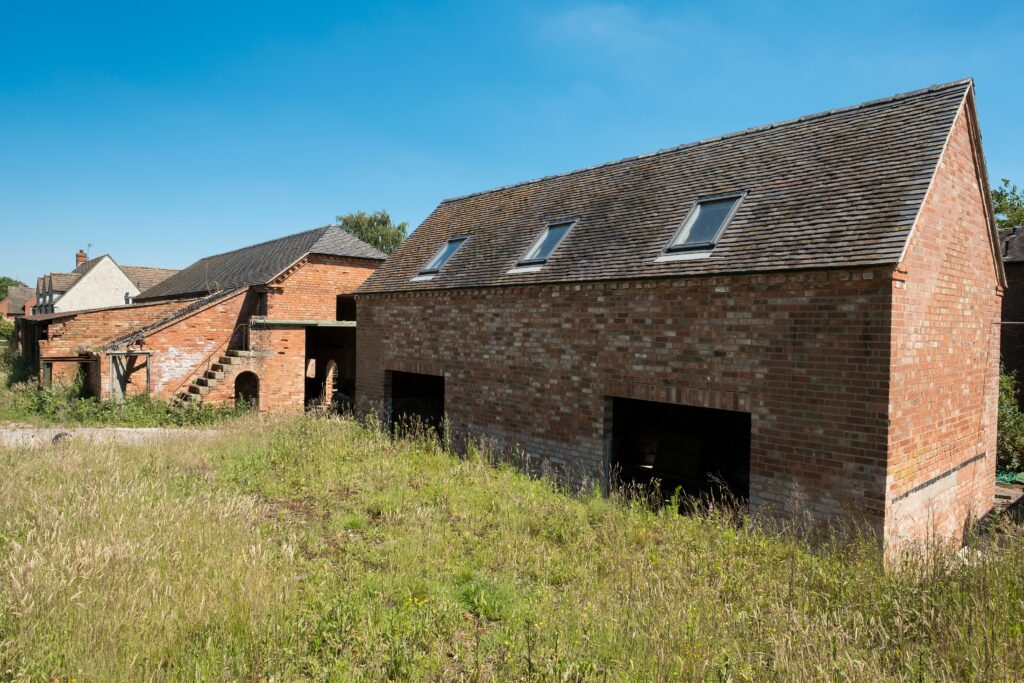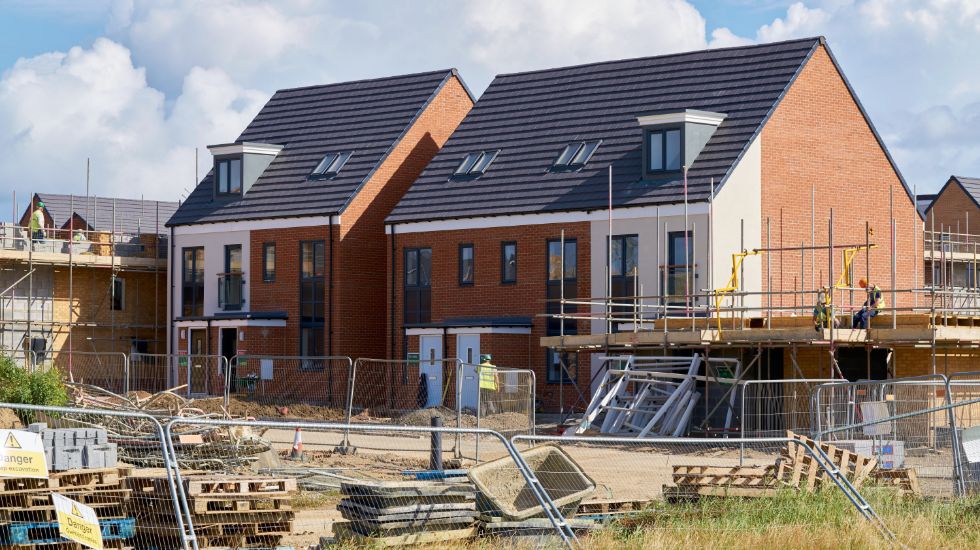Jump to section
- Quick links
- How we can help
- The conveyancing process & fees
- Buying or selling a listed property
- Transfer of equity
- Buying & selling properties with land
- Joint ownership & declarations of trust
- Buy to let
- Buying a holiday or second home
- Lease extension & enfranchisement
- Planning
- Meet the team
- Contact us now
How we can help
Buying or selling a home can be the largest investment you make; so you want to make sure you get expert property advice and the best value for money. Our highly respected residential property and conveyancing team is one of the largest and most experienced in Kent, serving client across the South East, London and nationally.
We know that moving house can be stressful. With us, you will have your own dedicated lawyer to help the transaction run as smoothly and quickly as possible.
With a broad range of property conveyancing legal know-how we provide an efficient, personal and informative service to our clients in the following areas:
- Freehold and leasehold – sales, purchases, mortgages and re-mortgages
- High value properties (including large country homes and prestigious London properties)
- Listed buildings
- Holiday homes and investment properties
- First time buyers
- Executor and attorney sales
- Court of Protection sales and purchases
- New-builds
- Lease extensions and lease enfranchisement
- Matrimonial and probate transfers
- First registrations of title with the Land Registry.
They understand the intricacies of higher-end properties, remarks one source. Another interviewee says: They are extremely good - they have a very strong team. Technically, it is a consistently high skill level, you get a consistent level of service.
Why choose Thomson Snell & Passmore?
Our local knowledge and strong networks with agents ensures your property transaction proceeds as efficiently as possible. We are on all of the major lenders’ panels and do not receive or pay referral fees.
Our market leading team of experienced conveyancing lawyers, based in Tunbridge Wells and serving clients across Kent, London, Sussex, Surrey and nationally, specialise in dealing with the sale and purchase of all types of residential property. Due to the level of service we provide and the quality of work, the team have been recognised in the Chambers HNW Guide for Real Estate with Head of Department, Rebecca Swain being ranked as a leading individual.
We offer direct contact with the same lawyer (via telephone and email) throughout your transaction. In the event of any absence, our team is structured to ensure that your transaction will be looked after by another lawyer, without a reduction in our level of service.
We can provide peace of mind by offering searches that check for any future development proposed near your property. The standard searches we propose reveal details of planning permissions granted on properties nearby.
All of our searches and correspondence with the Land Registry are conducted online, for speed and to keep costs down.
Our clients can also benefit from our strong network of lawyers who can provide additional advice on all aspects of your property transaction, including wills, trusts and tax planning, dispute resolution, family law and lease enfranchisement.
Accreditations & awards




The conveyancing process & fees
Our expert lawyers are here to help you at every step of the conveyancing process.
How does the conveyancing process work?
We have put together a short guide which shows the key stages of the conveyancing process.
How long does conveyancing take?
The time from your offer being accepted until you can move in, will depend on a number of factors, including the size of the chain. We aim to progress matters as quickly as possible, but all transactions are different. Assuming there is no chain it typically takes between 4 – 6 weeks from when a solicitor receives/sends the contract pack. When you are part of a chain, due to factors beyond our control, it will typically take a minimum of 8 weeks. However, transactions can compete much more quickly if all parties are committed to doing so and the documentation and funding is in place. Mortgage offers, delayed searches, management packs and information from third parties are all factors that can influence the time a transaction takes.
What searches should you run when buying a property and how long do they take?
As standard we will conduct a Local Authority Search, a Water & Drainage Search and an Environmental Report covering opinions on risks such as flooding, contamination, mining activity, ground stability, planning and other proposals and constraints. We will also offer advice on any other searches we recommend for the property type.
What can slow down exchanging on a property?
There are any number of factors that can slow a transaction down. It can simply be the speed of response from individuals and lawyers involved in the chain or factors outside of their control such as obtaining mortgage offers, delayed searches, management packs and information required from third parties.
Fees
We are committed to full transparency on fees and giving our clients meaningful choice as to the basis on which they wish to proceed. We ensure that clients are kept fully up to date on costs as the matter progresses.
We appreciate that costs quickly mount when buying or selling a property. With this in mind, we offer a comprehensive range of fixed fee services aimed at keeping legal costs to an absolute minimum.
Our fee proposal will be based on a full understanding of your needs, once we have taken into account the actual features of the matter and know what is important to you. Matters that can affect the fees include time sensitivity, leases, new-builds, managed estates, private drainage, Listed Buildings, complex and/or multiple titles, complex financing arrangements, third party involvement, major building works or plans and tenanted properties; as well as those items identified in the summary of work referred to above. Our pricing is calculated on an hourly rate basis and this varies between £160 and £390 (plus VAT at 20%) depending on the level of experience.
The tables below provide an average fixed fee range for the type of transaction referred to. It assumes that the work is within our standard scope of work and has no unexpected complications or high priority. If there are any unexpected complications or items that are outside of our initial scope we will inform you as soon as we become aware and will discuss the potential consequences, before any additional charges are incurred. VAT charged at 20%* will also apply to these fees.
| Value | Freehold | Leasehold/ Listed Building |
|---|---|---|
| Up to £500,000 | £1,200 - £2,500* | £1,500- £3,000* |
| £500,000-£1m | £1,500 - £3,500* | £1,800 - £4,000* |
| £1m - £2m | £2,500 - £4,500* | £3,000 - £5,000* |
| £2m - £3m | £3.500 - £6,000* | £4,000 - £7,000* |
| Above £3m | From £4,500* | From £5,000* |
| Value | Freehold | Leasehold/New build/Listed Building |
|---|---|---|
| Up to £500,000 | £1,200 - £2,500* | £1,500 - £3,000* |
| £500,000- £1m | £1,500 - £3,500* | £2,000 - £4,000* |
| £1m - £2m | £2,750 - £5,000* | £3,250 - £7,000* |
| £2m - £3m | £3,500 - £7,000* | £4,500 - £8,000* |
| Above £3m | From £4,500* | From £5,500* |
| Value | Freehold | Leasehold /Listed Building |
|---|---|---|
| Up to £500,000 | £1,000 - £2,000* | £1,250 - £2,000* |
| £500,000-£1m | £1,500 - £2,500* | £1,500 - £3,000* |
| £1m - £2m | From £2,000* | From £2,500* |
Additional fees and disbursements
Disbursements are costs related to your matter that are payable to third parties, such as those listed below. We handle payment of the disbursements on your behalf to ensure a smoother process. Any reference made to VAT is charged at 20%.
- Search fees (for purchases and re-mortgages): £350 – £500 approx. (plus VAT at 20%)
- HM Land Registry fee: For purchases, please use this link to view: the Land Registry’s fee scale 1. For sales, the Land Registry document fees are usually less than £20 (incl. VAT at 20%) (depending on the number of copy documents we have to obtain at £3 plus VAT at 20% per document). For mortgages and re-mortgages these are usually up to £20 (incl. VAT at 20%) for obtaining copy title documents. In addition there will be a registration fee based on the value of the new mortgage. Please use this link to view: the Land Registry’s fee scale 2
- Stamp Duty Land Tax (for purchases and some transfers) Please use this link to use: HMRC’s SDLT calculator. We will also advise you on basic SDLT liability. For more complex transactions, additional charges for advice may apply
- Managing agents fees (for sales, purchases and mortgages/re-mortgages). These vary and are stipulated by the Landlord and/or managing agents. They are generally unavoidable and non-negotiable. The costs are incurred for obtaining ground rent, service charge and management information, consents to sell, details of major works, notifications of changes to ownership and lenders and transferring shares in management companies among other things
- Electronic money transfer fee £30 plus VAT at 20% per CHAPS transfer e.g. sending money on completion.
I personally think that the team are one of the best in the area.
Buying or selling a listed property
If you dream of living in a listed property full of character such as a converted barn or church, an old thatched cottage, or even a castle, there will be many different things to consider before making your purchase.
Listed properties are very special and are protected under law, which is why buying one also brings with it the responsibility to look after and protect the building for future generations. Our expert listed buildings conveyancing lawyers have extensive experience in buying and selling listed properties and can help guide you through the process.
Buying or selling a listed building can be complex, we offer straightforward and intelligent advice on the whole range of issues that are specific to listed buildings, giving you peace of mind throughout the transaction.
What is a listed property?
A listed property is one that is included in National Heritage List of England for being of historical and/or architectural importance. You can search here to find out if the property you are interested in is listed.
Currently there are estimated to be 500,000 such buildings. You can search the Historic England list online if you wish to know more about them.
What are the categories of listed properties?
Listed buildings are divided into three tiers: Grade I, Grade II* and Grade II.
Grade I
Grade I buildings are rare, and described as being of exceptional interest – only 2.5% of listed buildings are categorised as Grade I. This is where you would commonly find cathedrals, churches and castles.
Grade II*
Grade II* buildings count for 5.5% of listed properties, and are particularly important buildings of more than special interest.
Grade II
Grade II buildings are of special interest, and is the most common grading with 91.7% of all listed buildings being categorised as grade II. The majority of residential listed properties are grade II buildings.
Alastair Harvey went above and beyond in his efficiency when dealing with some tricky moments in the sale of the property. All other members of staff that I came across during this sale were also very friendly and helpful. Thank you. I would definitely use Mr Harvey again and fully recommend him and the firm to family and friends.
How do listed buildings differ from other properties, and can you make alterations?
These properties are deemed to be historical assets. They are diverse and whilst they include older properties there are a number of modern structures and industrial or military buildings. This means that it may not be obvious that they are listed to the naked eye.
However, because they are special, they have protection under law, which makes them different from non-listed properties. Whilst they can be changed (or even demolished in rare cases), owners will need special permission to do so. This is called Listed Building Consent. One can be prosecuted for demolishing or making alterations without that permission.
It is a common misapprehension that only the front of the building or a certain part (such as a bread oven) is listed. But once listed, the whole premises is protected and this may extend to external buildings and structures.
What are common issues when buying or selling a listed property?
The main issues tend to revolve around illegal alterations, where someone has deliberately or innocently destroyed a part of the property that made it special. This means the person responsible may be prosecuted (jailed or fined) and they (or the new owners) may be asked to put right the damage at their cost.
Because such buildings are special they can be costly to maintain (as correct materials have to be used) and to insure.
It also means they can be harder to sell if illegal works have been undertaken. When buying such a property, care needs to be taken to identify, as far as possible, what changes have been made and what has the appropriate consent.
Points to consider when buying a listed property:
- What grade is the listing?
- Does the house suit my modern needs?
- Can I get a mortgage on a listed building?
Issues to look out for:
- Unauthorised work –Remove as Duplication
- General lack of repair, structural movement and cracks
- Double glazing (I would prefer ‘Windows’) and draughts and energy saving
- Damp
- Electrics
- Asbestos
- How do I get permission to make changes to a listed building?
- Will my local authority allow my proposed work/s on a listed property?
- Have past works on my listed building been authorised?
- Can I demolish a listed building?
- How much will it cost to repair a listed building?
- How can I avoid unexpected costs with listed buildings?
- Can I get financial support to repair this listed building?
- What insurance do I need for a listed property?
Transfer of equity
Changing the legal ownership of property is known as a transfer of equity. Our highly experienced residential property lawyers have considerable expertise in helping clients to transfer equity for a number of reasons including:
- On divorce, dissolution or separation of a cohabiting couple
- When property is being gifted
- Transferring property between family members
- On the formation of a trust.
A transfer of equity can have a number of implications and it is important to seek expert advice early on. As a full service firm, we work closely with our colleagues in our family and tax planning teams to ensure that all aspects of a transfer of equity are taken into account, so that is runs as smoothly as possible.
When would you transfer equity in a property?
There are a number of reasons why you may wish to make a transfer of equity. You may be divorcing or separating, or indeed adding a new spouse or civil partner to the title of a property.
Alternatively, you may be transferring equity as partner of a wider tax and estate planning exercise, to help mitigate Inheritance Tax or Capital Gains Tax.
How long does a transfer of equity take?
As with buying or selling a property, we aim to progress matters as quickly as possible, but all transactions are different. We would expect a typical transfer to take between 4 – 6 weeks However, transactions can compete much more quickly if all parties are committed to doing so and the documentation and funding is in place. Mortgage offers, delayed searches, management packs and information from third parties are all factors that can influence the time a transaction takes.
Is SDLT payable on a transfer of equity?
Transfers of equity can be subject to SDLT but it will depend on the specific facts agreed and we can help advise on the potential liability.
Thank you so much for all you have done for us over the last two years. It feels like quite an achievement to have dealt successfully with the prolonged processes of our own sale and purchase and then the same for the properties in my brother’s estate. That we have emerged from it all relatively unscathed is in no small measure down to you.
We particularly value your professional expertise, your reliability, your efficiency, your practicality and your warm approachability. Needless to say we shall certainly be in touch if we’re ever foolish enough to decide to move again.
Buying & selling properties with land
Many people dream of buying a home with land, such as an equestrian property or a property with woodland. Buying or selling landed property can be complex and there are some key things you will need to consider.
Our expert residential conveyancing lawyers will be able to guide you through every step.
For those looking to buy or sell agricultural land or property, our experienced agricultural specialists as part of our Real Estate team will be able to help.
What do you need to consider when buying a property with land?
In addition to the enquiries we make on residential property, we will need to consider the use of the land and whether there are formal or informal arrangements for third parties to use the land.
The ultimate in professionalism. All members of the company are polite, efficient and I would recommend to others.
Joint ownership & declarations of trust
When buying a property with someone, there are two main joint ownership options to choose from. You will normally own the property as either joint tenants or tenants in common. Our friendly conveyancing lawyers can help guide you through the process and ensure you select the right option for your needs. Where appropriate, we can work with our tax planning colleagues to ensure that all relevant tax considerations are taken into account.
Kim has truly been exceptional in helping us with our house move. Her diligence and attention to detail made sure that no stone was unturned. It was a complicated house purchase and her knowledge and also her recommendations on who to work with and what to do at every turn were invaluable.
What does it mean when you own a property as joint tenants?
As joint tenants, all people involved own the property in equal shares. The key elements to this type of ownership is that if one of the owners dies, the property will automatically pass to the other owner or owners. This will be the case even if you have a will, which leaves your share of a property to someone else.
What does it mean when you own a property as tenants in common?
As tenants in common, each person involved will own a certain share of the property, perhaps to reflect each person’s contribution to purchasing the property or if friends or siblings are buying a property together. In this type of tenancy, if an owner dies, their share in the property will not automatically pass on to the other tenants, but instead will pass on as laid out in their will (or according to the rules of intestacy if they do not have a valid will).
What is a declaration of trust?
Many people also wish to record aspects such as who paid a greater part of the deposit as well as set out how the proceeds will be split when the property is sold. A declaration of trust is a legally binding document that sets out these aspects and can also include things such as who will pay what share of the mortgage and what should happen if one person wants to move out. Our Family department also has extensive experience in assisting clients with wider cohabitation agreements.
Buy to let
Purchasing a buy to let property can be complex. Our residential property & conveyancing lawyers have extensive experience of the process and can help guide you through it.
For experienced landlords with portfolios of property, our specialist commercial real estate landlord & tenant team are here to help.
Buying a holiday or second home
Buying a second or ‘holiday’ home, whether that is by the seaside or a pied-à-terre in town is a dream for many people. The process for purchasing a second home can be complex and there are tax considerations to take into account. Our residential conveyancing lawyers have significant expertise in helping clients to buy and sell second homes and work closely with our tax experts as needed.
What are the tax implications of buying a second home?
A surcharge rate of SDLT applies when you are purchasing a second or additional property.
What are the tax implications when selling a second home?
You will need advice on whether Capital Gains Tax will be payable on completion of the sale.
Alastair Harvey is an outstanding conveyancing solicitor - he has now acted for us more than a dozen times. His attention to detail, speed of response and knowledge in his field makes him essential to our small family business as property developers - I always feel an enormous sense of relief once our potential purchase/sale is in his hands. Alastair is always a pleasure to work with, a quick mind and a professional manner - his care and attention to detail has helped our business to flourish.
Lease extension & enfranchisement
We have a team of lawyers who have extensive experience dealing with leasehold enfranchisement matters. We advise landlords and leaseholders as well as developers on this complex area of law and we work closely with other professionals including valuers and surveyors.
Our specialist team can offer advice and guidance on the following issues:
- The freehold purchase of a house
- Extending the lease of a house
- The freehold purchase of a building containing flats
- Extending the lease of an individual flat
- Right of first refusal
- Right to manage
- Applications to the Tribunal and to the Court
- Advice on strategy for protecting and enhancing the value of your investment.
We provide a comprehensive service including clear and concise advice and information on costs.
How can I extend my lease?
As a general rule there are two options for extending a lease of a flat or a lease of a house. The first option is for a tenant to approach their landlord to ask whether the landlord is willing to grant a new lease without the tenant having to follow one of the statutory procedures for claiming a new lease. Some landlords will agree to extend the lease outside of the statutory process on terms that are acceptable to the tenant and any lender who might have a charge over the property. Provided the relevant statutory conditions for extending a lease are fulfilled by the tenant the second option is for the tenant to serve a formal notice of claim for a new lease on the landlord. In the case of a flat the notice of claim will be served under the Leasehold Reform, Housing & Urban Development Act 1993 and where the leasehold property is a house the notice of claim will be served under the Leasehold Reform Act 1967.
Key contacts
How much does it cost to extend a lease?
Before making a claim for a new lease it is advisable to obtain advice from a valuer in connection with the premium the tenant can expect to pay to the landlord for the new lease. If the tenant follows the statutory route for claiming a lease extension, the 1993 Act and the 1967 Act both set out a formula for calculating the premium the tenant must to the landlord in return for the new lease. In addition the tenant will incur legal costs with their own solicitor, Land Registry fees and any fees their lender might charge for giving their consent to the new lease. Under both the 1993 Act and the 1967 Act the tenant is obliged to pay the landlord’s reasonable costs in connection with certain aspects of the lease extension process. If the terms on which the new lease is to be granted cannot be agreed with the landlord, the tenant may also incur the cost of an application to the First-Tier Tribunal (Property Chamber) to ask the Tribunal to determine the issues that are in dispute.
Can a leaseholder buy the freehold of a property?
Provided the qualifying conditions set out in the 1967 Act are fulfilled, a tenant may be entitled to buy the freehold of a leasehold house from the landlord. In relation to the freehold of a building containing flats, the tenant acting together with other flat owners in the building may be able to jointly acquire the landlord’s freehold interest under the 1993 Act, again provided the qualifying conditions can be met. The process under the 1993 Act is known as “collective enfranchisement”. There may be other circumstances in which a tenant may buy the freehold of a property. For example in the case of a building containing flats the flat owners may be entitled to acquire the freehold under the right of first refusal process set out in the Landlord and Tenant Act 1987.
Planning
Our planning experts have an in-depth understanding of the complexities of UK planning law and significant expertise in helping guide clients through difficult planning issues.
We focus clearly on the results that our clients want to achieve and we will always be pragmatic, clear and candid on what’s the most realistic way to get there.
Our specialisms include:
- Assessing the planning risks prior to purchasing a property
- Permitted development rights
- Appeals against refusal (or non-determination) of planning permission
- Judicial reviews/group actions against decisions for planning locally
- Submitting representations for/against proposals
- NPPF and planning guidance.
Key contacts
Permitted development rights
Planning law allows certain types of development to be built without the need for planning permission. With such a wide range of permitted development rights, it’s sometimes hard to know where to begin. There are strict conditions and restrictions on how and when the right arises and our planning lawyers can advise independently or work alongside your construction team to help you weave your way through the web of rules and regulations.
What can I do if my planning permission is refused?
When permission is refused, our team can talk you through the options available to you. With the help of planning consultants, landscape professionals or architects, to mention a few, our understanding of the procedures involved will ensure that we achieve the best possible outcome for you.
Judicial review against a planning decision
The strict time limits for each stage, potential costs and legal principles for issuing a claim for judicial review (or statutory review) are at the forefront of our lawyers’ minds from the first phone call, all the way through the case, to the negotiation of a final outcome. There are many hurdles to overcome during a legal challenge and our lawyers will provide you with clear advice on what is realistically and legally achievable in the circumstances. Given the short time frame to submit a claim (6 weeks from the date of the decision in question), it is vital that you contact us at the very earliest opportunity if you think that a judicial review is possible, so that we can assess the situation and advise you on the way forward.
We wanted to say thank you so much for all of your work to date. Just as with our last purchase, you have been an anchoring presence in the middle of the variables of estate agents, lettings agents and other unknown quantities! Your ability to make things go smoothly in these situations is not to be underestimated, and we’re extremely grateful for all you have done.








